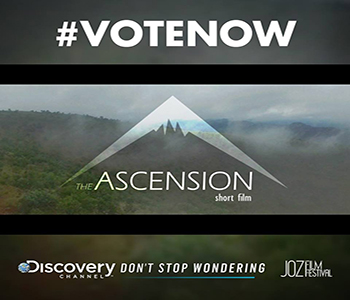Latest News Archive
Please select Category, Year, and then Month to display items
12 October 2020
|
Story Arina Engelbrecht
|
Photo Supplied
 Arina Engelbrecht from Organisational Development and Employee Well-being believes physical activity has a number of benefits for one’s health, including stress relief.
Arina Engelbrecht from Organisational Development and Employee Well-being believes physical activity has a number of benefits for one’s health, including stress relief.
Being physically active plays a big role in preventing the development of mental-health problems and in improving the quality of life of people experiencing mental-health problems.
Treatment for depression
Physical activity can be an alternative treatment for depression. It can be used as a stand-alone treatment or in combination with medication and/or psychological therapy. It promotes all kinds of changes in the brain, including neural growth, reduced inflammation, and new activity patterns are formed that promote feelings of calm and well-being. It releases endorphins – powerful chemicals in the brain that energise your spirit and make you feel good.
Physical activity can be very effective in relieving stress. Research in adults has found that physically active individuals tend to have lower stress levels compared to individuals who are less active. It also leads to improved sleep. When a person sleeps better and feels more rested, overall quality of life improves. They cope better with daily life stressors.
Reduce Alzheimer's risk
Regular physical activity can reduce your risk of developing Alzheimer's disease by up to 50%. It can also slow down further deterioration in those who have already started to develop cognitive problems. It stimulates the brain’s ability to maintain old connections as well as to make new ones.
A study asked people to rate their mood immediately after periods of physical activity (e.g. going for a walk/run, cycling, doing housework) and periods of inactivity (e.g. reading a book or watching television). Researchers found that participants felt more content, more awake, and calmer after being physically active compared to after periods of inactivity.
In conclusion, people who are physically active feel a sense of well-being, feel more energetic throughout the day, sleep better at night, have sharper memories, and feel more relaxed and positive about themselves and their lives.
“Being physically active not only changes your body, it changes your mind,
attitude, and your mood.” – Arina Engelbrecht
Kovsie’s short film in top 10 at Jozi Film Festival
2017-08-15

The public can now vote for Dieter du Plessis’
short film, The Ascension, in the Don’t Stop Wondering
competition at the Jozi Film Festival. Photo: Supplied
An outdoor running adventure, a passion for filmmaking and a scenic environment is what made Dieter du Plessis create the adrenaline-driven short film The Ascension.
Dieter, a second year BSc Quantity Surveying student, made the film, which is in the top 10 of the Don’t Stop Wondering competition at the Jozi Film Festival, in partnership with Discovery Networks Africa. “I always had a passion for filmmaking and when a friend informed me about the competition, I just had to enter,” Dieter said.
The Ascension follows trail runner, Simeon du Toit, across a mountainous landscape leaping and running over rugged terrain. Simeon also provides the voice-over that explains the essentials of mountain climbing. Simeon is a keen climber and was the perfect casting choice as he is familiar with the area. “The competition wants to embrace the African spirit, so I wanted to shoot outside to truly capture the African landscapes.”
The Ascension first aired on the Discovery Channel on DStv channel 121 on 1 August 2017. It will air again on 17 and 23 August 2017 at 13:35 and 20:00 respectively. The competition closes on 30 August 2017.
To vote for The Ascension, go to the Discovery Africa website.